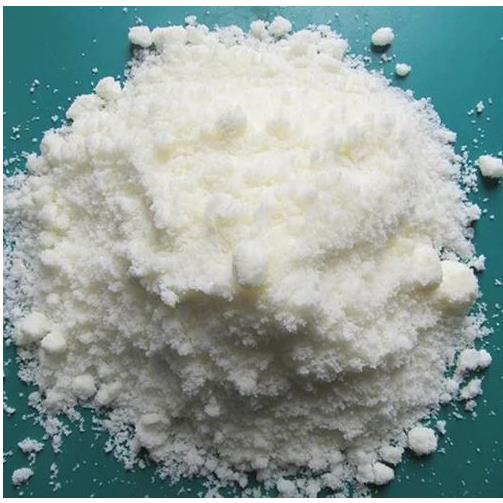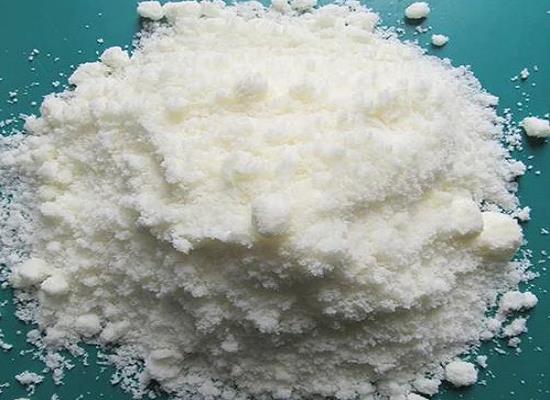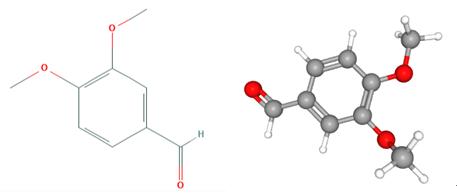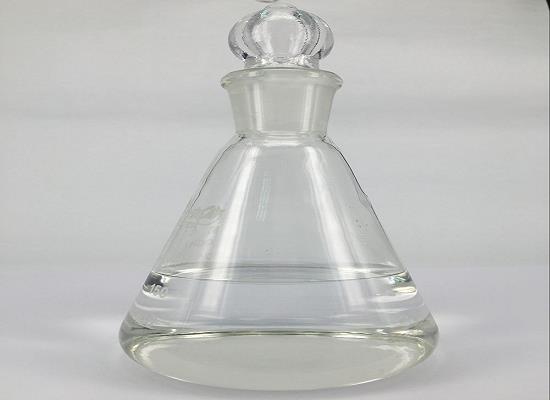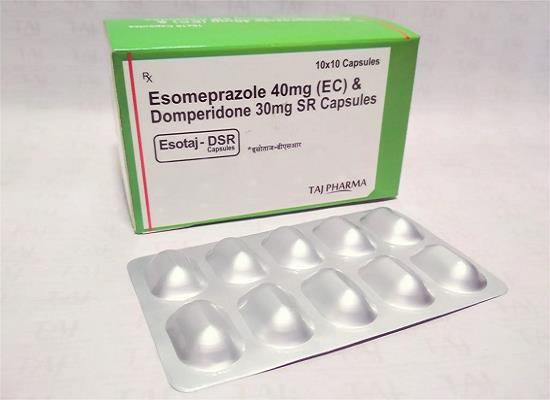Veratraldehyde: properties, applications and safety
General Description
Veratraldehyde is a colorless to pale yellow lumps or fused solid with a distinct aroma. It is used as a food flavoring agent and finds applications in cosmetics, household items, and pharmaceuticals. Its chemical properties enable condensation reactions with various compounds, leading to the formation of new organic compounds. Veratraldehyde can also undergo oxidation, reduction, hydrolysis, and other reactions, yielding a wide range of derivatives. Its reactivity makes it valuable in different industries for synthesizing novel organic compounds. Additionally, Veratraldehyde has shown potential as an antitumor drug, exhibiting cytotoxicity against cancer cells. It also exhibits antibacterial activity and may be effective against fungal infections. However, veratraldehyde may have toxicity and irritability, necessitating cautious use and further research on its safety.
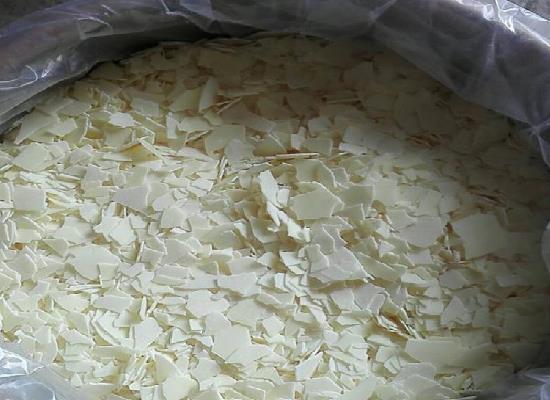
Figure 1. Veratraldehyde
Properties
Veratraldehyde is a colorless to pale yellow lumps or fused solid with high reactivity. It possesses a distinctive aroma and is commonly used as a food flavoring agent. Chemically, Veratraldehyde belongs to the class of polyphenolic substances. It exhibits lively chemical properties, readily undergoing reactions with various substances. It can undergo condensation reactions with alcohols, phenols, aldehydes, and other compounds, leading to the formation of new organic compounds. Additionally, Veratraldehyde can undergo oxidation, reduction, hydrolysis, and other reactions, giving rise to a wide range of derivatives. The versatile nature of Veratraldehyde's chemical properties makes it valuable in numerous industries. Its reactivity allows for the synthesis of novel organic compounds with diverse applications. Whether utilized for its fragrance or its role as a precursor for the production of specialized compounds, Veratraldehyde proves to be a versatile compound with significant potential in the field of chemistry and industry. 1
Applications
Antitumor drug
Veratraldehyde has shown promising applications in the field of cancer treatment. In our study, we successfully developed two efficient synthesis protocols to produce feruloyl and caffeoyl derivatives using veratraldehyde. These synthesized compounds were then evaluated for their pharmacological activities against various human cancer cell lines in vitro. The results of our investigation revealed that the majority of the synthesized compounds exhibited notable cytotoxicity, indicating their potential as anti-cancer agents. Moreover, several newly developed compounds displayed significant antiproliferative and cytotoxic effects specifically targeting HeLa and Bewo tumor cell lines. One compound in particular, namely 5-nitro caffeic adamantyl ester, demonstrated a broad spectrum of tumor inhibition across 10 different cell lines. Furthermore, when administered at a dose of 40 mg kg(-1), it was able to reduce tumor weight by 36.7% in vivo. These findings highlight the potential role of Veratraldehyde derivatives, such as 5-nitro caffeic adamantyl ester, in the development of effective and targeted therapies for combating tumors. Further research and clinical trials are warranted to explore their full therapeutic potential in cancer treatment. 2
Antifungal agent
Veratraldehyde exhibits antibacterial activity by reacting with active methyl compounds to form Schiff bases. These reaction products have antibacterial properties and can be used for treating fungal infections. Specifically, Veratraldehyde can react with active methyl compounds to generate Schiff bases. Schiff bases are a class of substances with antibacterial activity that can be used for treating fungal infections. Studies have shown that the reaction products exhibit antibacterial activity against various fungi, including Candida and dermatophytes. Furthermore, these reaction products can inhibit fungal cell growth and reproduction, thereby effectively treating infections caused by fungi. 3
Safety
According to some studies, veratraldehyde may have toxicity and irritability that could have adverse effects on human health. Animal experiments have shown that veratraldehyde can cause liver and kidney damage, as well as symptoms like respiratory difficulties and seizures1. Additionally, literature reports suggest that veratraldehyde may cause skin irritation, eye damage, and respiratory tract irritation. However, there are also studies suggesting that veratraldehyde is relatively safe. A review study points out that although veratraldehyde is considered toxic, its usage levels in cosmetics and food are typically low and generally do not have significant impacts on human health. Further research and evaluation are necessary to fully understand the safety of veratraldehyde. When using veratraldehyde, it is important to follow relevant safety guidelines and precautions to avoid unnecessary risks. 4
Reference
1. PubChem: 3,4-Dimethoxybenzaldehyde. National Library of Medicine, 2004, CID:8419.
2. Chen HZ, Chen YB, Lv YP, Zeng F, Zhang J, Zhou YL, Li HB, Chen LF, Zhou BJ, Gao JR, Xia CN. Synthesis and antitumor activity of feruloyl and caffeoyl derivatives. Bioorg Med Chem Lett, 2014, 24(18):4367-4371.
3. Sharma RC. Reaction of active methylene compounds with veratraldehyde Schiff bases and antifungal activity of products. Indian Journal of Chemistry, 1982, 21:1059-1060.
4. Safety Data Sheet: Veratraldehyde. Synerzine, 2012, 77:58.
You may like
Related articles And Qustion
Lastest Price from Veratraldehyde manufacturers
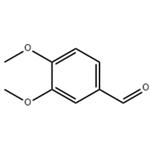
US $0.00/kg2025-09-02
- CAS:
- 120-14-9
- Min. Order:
- 1kg
- Purity:
- 99%min
- Supply Ability:
- 20tons

US $1.00/KG2025-04-21
- CAS:
- 120-14-9
- Min. Order:
- 1KG
- Purity:
- 99%
- Supply Ability:
- 10 mt

